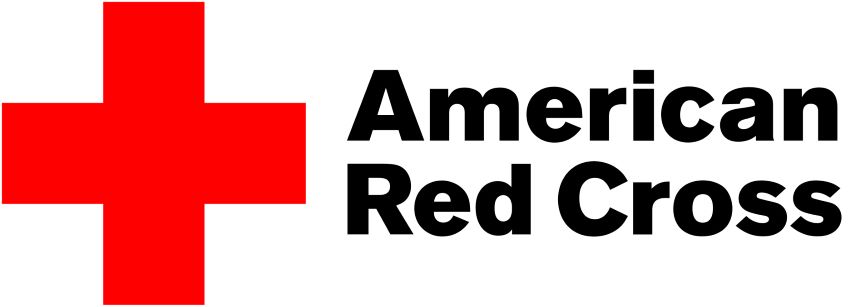Red Cross Has Safety Reminders Ahead of Severe Cold Weather

PROVIDENCE, R.I., (February 2, 2023) – A Wind Chill Warning is in effect for Rhode Island from Friday morning through Saturday morning. Temperatures will likely be below zero in many locations with wind chills making it feel as cold as 30 degrees below zero in some areas.
The American Red Cross wants to remind everyone to prepare in anticipation of the intense cold. Below are some tips to keep you and your loved ones safe.
Winter weather can bring life-threatening conditions. Stay indoors and wear layers of loose fitting, lightweight warm clothes. Visit here to learn how to keep your pipes from freezing.
- Check on relatives, neighbors and friends, particularly if they are elderly or live alone.
- Avoid overexertion, such as shoveling snow, pushing a vehicle or walking in deep snow.
- Caulk and weather-strip doors and windowsills to keep cold air out. Install storm windows or cover windows with plastic from the inside to provide an extra layer of insulation to keep cold air out.
- Make sure you have enough heating fuel on hand.
- If possible, bring your pets inside during cold winter weather. Move other animals or livestock to sheltered areas and make sure they have access to non-frozen drinking water. If the animals are outside, make sure their access to food and water is not blocked by snow drifts, ice or other obstacles.
STAY SAFE OUTSIDE
Wear layered clothing, mittens or gloves, and a hat.
- Cover your mouth to protect your lungs from severely cold air.
- Keep dry. Change wet clothing frequently to prevent a loss of body heat. Wet clothing loses much of its insulating value and transmits heat rapidly away from the body.
- Stretch before you go out. If you go out to shovel snow, do a few stretching exercises to warm up your body. This will reduce your chances of muscle injury.
- Avoid overexertion, such as shoveling heavy snow, pushing a vehicle, or walking in deep snow. The strain from the cold and the hard labor may cause a heart attack. Sweating could lead to a chill and hypothermia.
- Walk carefully on snowy, icy sidewalks. Slips and falls occur frequently in winter weather, resulting in painful and sometimes disabling injuries.
- If you must go out during a winter storm, use public transportation if possible. About 70 percent of winter deaths related to ice and snow occur in automobiles.
WATCH FOR SIGNS OF HYPOTHERMIA AND FROSTBITE.
To avoid frostbite and hypothermia, be aware of the wind chill and dress appropriately.
- When outside, stay active to maintain body heat, take frequent breaks from the cold and avoid unnecessary exposure of any part of the body.
- Drink liquids, such as warm broth or juice, but avoid caffeine and alcohol.
- Get out of the cold immediately if signs of hypothermia or frostbite appear. These signs include shaking uncontrollably, getting extremely tired, turning very pale or getting numb fingers, toes, ears or nose.
- To treat someone who may have hypothermia or frostbite, gently warm them by
wrapping them in a blanket and giving them warm drinks and high-energy foods. Call 911 if these signs are severe.
POWER OUTAGE SAFETY
Use flashlights in the dark — not candles.
- Don’t drive unless necessary. Traffic lights will be out and roads could be congested.
- Turn off and unplug any appliances, equipment and electronics. When the power comes back on, surges or spikes can damage equipment. Leave one light on, so you’ll know when power is restored.
- If a power outage is two hours or less, don’t be concerned about losing perishable foods. During a prolonged outage, keep refrigerator and freezer doors closed as much as possible to protect your food. Use perishable food from the refrigerator first. Then, use food from the freezer. If the power outage will continue beyond a day, prepare a cooler with ice for your freezer items. Keep food in a dry, cool spot and cover it at all times.
- If you are using a generator, keep it dry and don’t use it in wet conditions.
- Never use a generator, grill, camp stove or other gasoline, propane, natural gas or charcoal-burning device inside a home, garage, basement or other partially enclosed area. Keep this equipment outside and away from doors, windows and vents, which could allow carbon monoxide to come indoors.
- Plug appliances directly into the generator. Never plug a generator into a wall outlet.
DOWNLOAD OUR APPS Download the free Red Cross First Aid app so you’ll know what to do if emergency help is delayed and the free Emergency app for weather alerts, open Red Cross shelter locations and safety steps for different emergencies. Choose whether you want to view the content in English or Spanish with an easy-to-find language selector. Find these and all of the Red Cross apps in smartphone app stores by searching for the American Red Cross or going to redcross.org/apps.